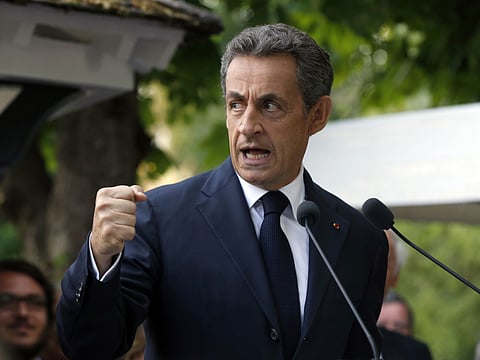France’s toxic socio-political mix
Integrating immigrants is not always easy, but demanding cultural assimilation may backfire

If you think immigration is a poisonous issue in American politics, spare a moment of sympathy for France, where demographics, terrorism and a presidential election have collided to produce a truly toxic mix.
For decades, France has grappled with the problem of a growing underclass in its industrial cities’ gritty working-class suburbs — mostly Muslim immigrants and children of immigrants from former French colonies such as Algeria, Morocco and Tunisia.
This year, French citizens of North African descent have been charged in at least two terrorist strikes: The January attack on the satirical weekly Charlie Hebdo and last week’s attack on a factory near Lyon, where a severed head was impaled on a gatepost.
And that has predictably intensified the debate among politicians about the challenges of assimilating Muslims into France’s largely secular society. President Francois Hollande, a socialist, has insisted that the problem is terrorism, not Islam. His government has expanded discussions with Muslim organisations and increased employment aid for low-income youth. Hollande’s conservative critics, led by former president Nicolas Sarkozy, have lambasted the government for “wallowing in naivete” and called for a national debate on the place of Islam in French society.
As France’s 2017 presidential election approaches, Sarkozy — who plans to run again — has also turned up the heat with specific proposals. For example, he has suggested that Muslim women in universities should be banned from wearing head scarves and that school cafeterias should stop offering menu options that meet Muslim dietary rules.
Like the United States, France has a strong tradition of separating church and state, but in France, it takes the more rigorous form of a national policy of laicite or secularism. Under laicite, which bars anyone from wearing religious symbols on government premises, female civil servants cannot wear scarves to work and mothers in veils cannot pick children up from school. In April, a high school in northern France sent a 15-year-old Muslim girl home for wearing a black maxi skirt to class. The principal explained that if her choice had been a matter of fashion, she could have stayed, but because it was an expression of religious belief, she could not. (The dress rules are less stringent for university students, who are allowed to wear scarves — unless Sarkozy has his way.)
A separate law, known as the “burka ban,” prohibits women (and men) from covering their faces in a public place; last year, a woman attending a performance of the Paris National Opera was told to leave unless she removed her veil. (She left.) The clothing rules cover other religious groups too: Christian children have been told they cannot wear crucifixes to school if they are “conspicuous” and in March, a rabbi in the southern city of Toulouse was ordered to remove his kippa (skullcap) when he arrived at a polling station to vote.
But the laws, which have been widely supported by politicians of the left as well as the right, affect Muslims more often than others. That includes indirect effects: A Muslim civil rights organisation says there have been dozens of physical attacks on women wearing veils or head scarves on the street since 2014.
“There’s nothing wrong with the principle of laicite,” Sefen Guez-Guez, a Muslim civil rights lawyer in Nice, told me. “The problem is an extremist version of laicite ... When Sarkozy says the veil has no place in France, people hear that and say, well, if the leader of a major party says it, it must be a legitimate sentiment.”
The effect on young Muslims, he warned, is dangerous. “If you’re a Muslim, it makes you ask: Do I really have a place in France?” Guez-Guez said. “It means some Muslims find it difficult to be French and Muslim at the same time. It means young people, especially, begin to feel that France doesn’t want us. It gives them a sense of being rejected ... it leads to radicalisation.”
Jean Bauberot, a sociologist who advised the French Parliament before it passed the 2004 law on religious clothing, agreed. “If we wanted young people to be attracted by extremism, we couldn’t do better than this,” he told Agence France-Presse.
And this is in a country that is not notably hostile toward Islam. A Pew Research survey in June found that the French are actually more hospitable towards Muslims than the citizens of other major European countries. In the Pew survey, 76 per cent of French respondents said they had “favourable” views towards Muslims. The remaining 24 per cent said they had “unfavourable” views. By comparison, 61 per cent of Italians said they had an unfavorable view of Muslims.
But even if they are not explicitly anti-Muslim, the French remain anti-veil. Polls have found that strong majorities favour the policy of prohibiting scarves and other religious garb from public places.
“The French want diversity, but on condition that others resemble them,” Tareq Oubrou, the chief imam of Bordeaux’s mosque, said recently. “They want the immigrant to integrate and disappear.”
That has not happened. If there is a lesson for the rest of us, it may be this: Integrating immigrants is not always easy, but demanding cultural assimilation may backfire — and lead to alienation.
— Los Angeles Times



